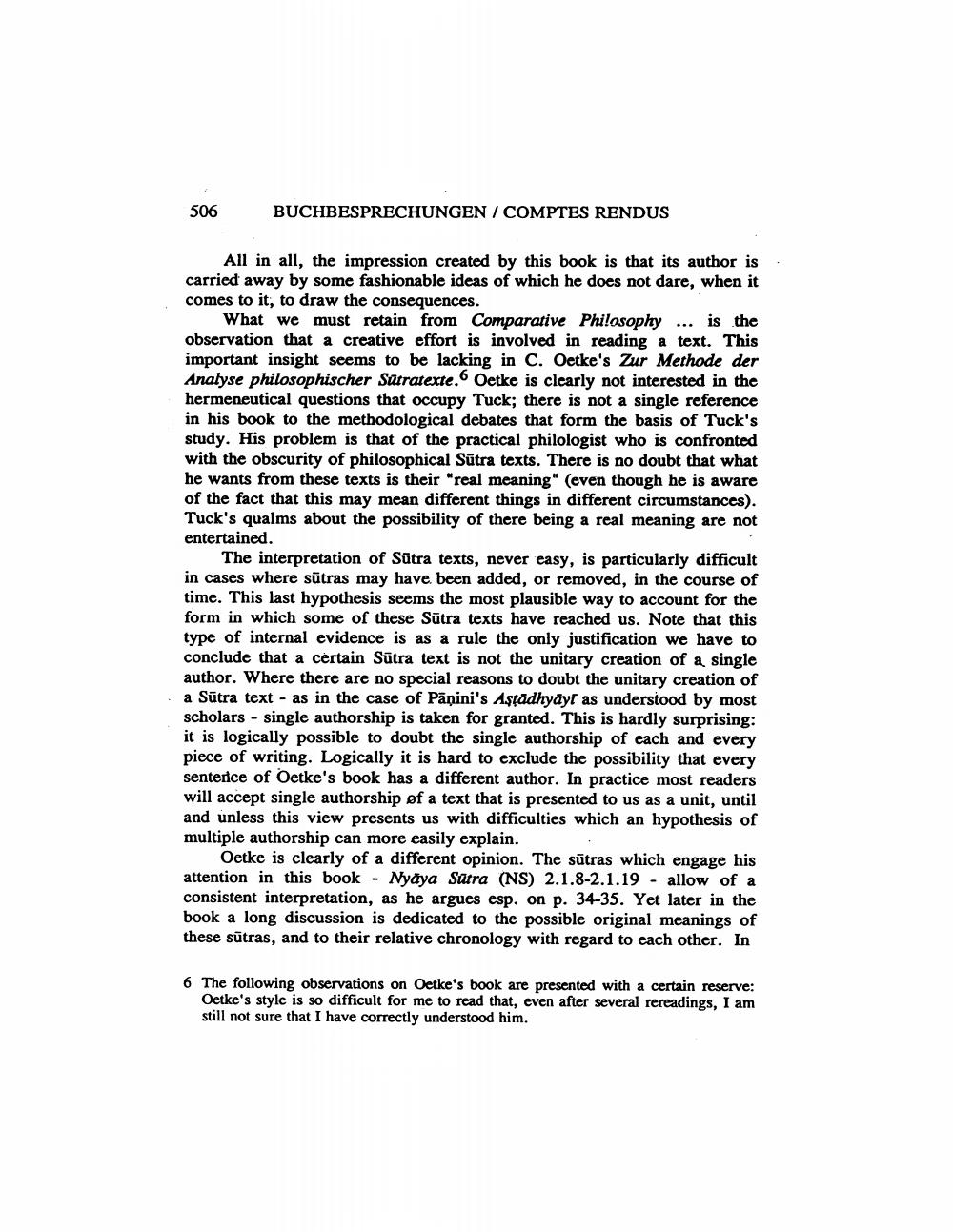Book Title: Buchbesprechungen Comptes Rendus Author(s): Johannes Bronkhorst Publisher: Johannes Bronkhorst View full book textPage 6
________________ 506 BUCHBESPRECHUNGEN / COMPTES RENDUS All in all, the impression created by this book is that its author is. carried away by some fashionable ideas of which he does not dare, when it comes to it, to draw the consequences. What we must retain from Comparative Philosophy ... is the observation that a creative effort is involved in reading a text. This important insight seems to be lacking in C. Oetke's Zur Methode der Analyse philosophischer Satratexte. Oetke is clearly not interested in the hermeneutical questions that occupy Tuck; there is not a single reference in his book to the methodological debates that form the basis of Tuck's study. His problem is that of the practical philologist who is confronted with the obscurity of philosophical Sūtra texts. There is no doubt that what he wants from these texts is their "real meaning" (even though he is aware of the fact that this may mean different things in different circumstances). Tuck's qualms about the possibility of there being a real meaning are not entertained. The interpretation of Sūtra texts, never easy, is particularly difficult in cases where sütras may have been added, or removed, in the course of time. This last hypothesis seems the most plausible way to account for the form in which some of these Sūtra texts have reached us. Note that this type of internal evidence is as a rule the only justification we have to conclude that a certain Sütra text is not the unitary creation of a single author. Where there are no special reasons to doubt the unitary creation of a Sūtra text - as in the case of Pāņini's Aştadhyayf as understood by most scholars - single authorship is taken for granted. This is hardly surprising: it is logically possible to doubt the single authorship of each and every piece of writing. Logically it is hard to exclude the possibility that every sentence of Oetke's book has a different author. In practice most readers will accept single authorship of a text that is presented to us as a unit, until and unless this view presents us with difficulties which an hypothesis of multiple authorship can more easily explain. Oetke is clearly of a different opinion. The sutras which engage his attention in this book - Nyaya Satra (NS) 2.1.8-2.1.19 - allow of a consistent interpretation, as he argues esp. on p. 34-35. Yet later in the book a long discussion is dedicated to the possible original meanings of these sūtras, and to their relative chronology with regard to each other. In 6 The following observations on Oetke's book are presented with a certain reserve: Oetke's style is so difficult for me to read that, even after several rereadings, I am still not sure that I have correctly understood him.Page Navigation
1 ... 4 5 6 7 8 9 10
